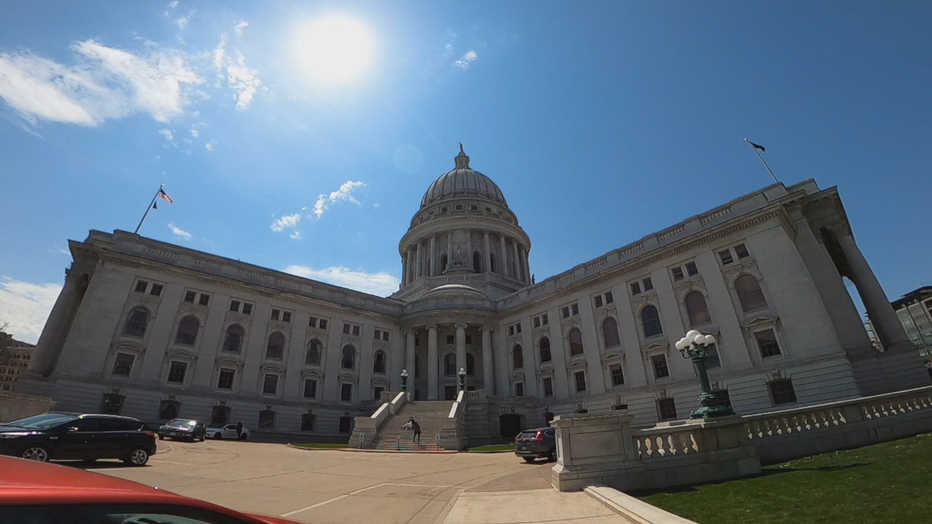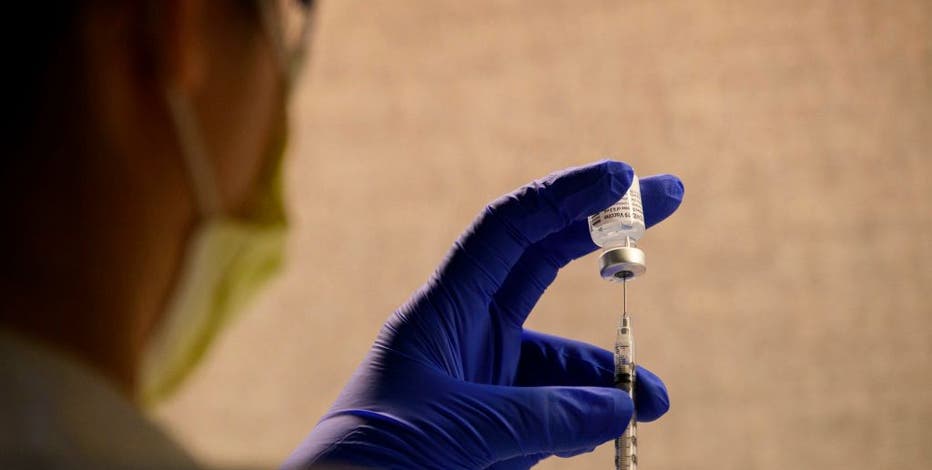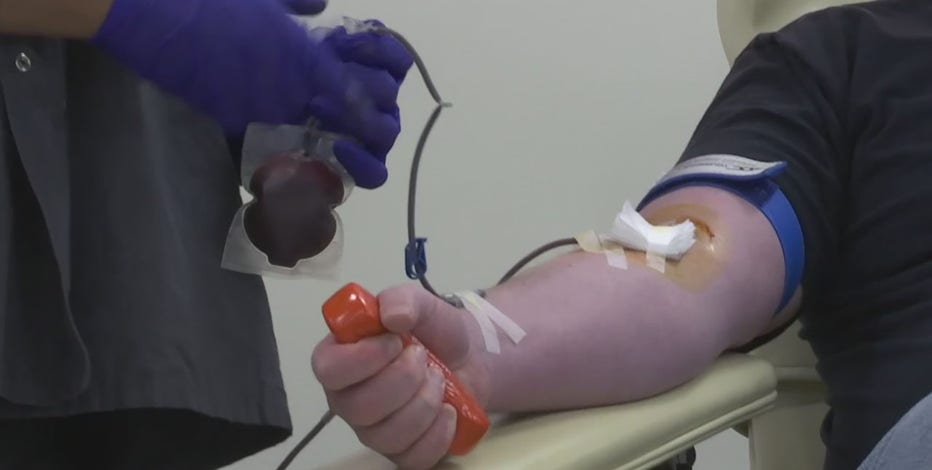Wisconsin Assembly passes COVID-19 bill Senate GOP opposes
MADISON, Wis. - The Republican-controlled Wisconsin Assembly on Thursday passed a doomed COVID-19 response bill that Senate Republicans and Democratic Gov. Tony Evers oppose, and there’s no sign of an agreement on a plan to combat the virus that has killed more than 5,000 people in the state.
Evers and Assembly Democrats have their own proposals that Republicans do not support. The Legislature hasn't passed anything related to the pandemic since April, and recent talks between Evers and Republican leaders failed to result in a deal.

Wisconsin State Capitol, Madison
The Assembly voted 56-34 to pass the bill on Thursday, with all Republicans in support and Democrats against. Republicans voted down the Democratic proposal offered as an amendment, which included accepting the federal Medicaid expansion, something the GOP has long opposed.
The bill must pass the Senate and be signed by Evers before becoming law.
When he introduced the Assembly Republican COVID-19 bill on Monday, Speaker Robin Vos said Senate Republicans supported it. But Senate Majority Leader Devin LeMahieu said Thursday that was incorrect.
FREE DOWNLOAD: Get breaking news alerts in the FOX6 News app for iOS or Android
"That is not the case," he said. "There is a reason that was an Assembly bill and not a Senate bill."
Vos did not immediately return a message asking why he had said Senate Republicans were on board if they are not. He also did not address the Senate’s opposition during Assembly debate.
Sen. Steve Nass, one of the most conservative members of the Senate, said the measure fell short in his priorities which included requiring state workers to return to the office, tying school funding to in-person classes, expanding school choice programs and limiting the power of state and local health agencies.
"We should not rush to pass a feel-good bill for politicians or special interests," Nass said in a statement. "Instead, we should continue working to get a bill that meets the needs of families and protects the civil liberties of our constituents."
The measure approved by the Assembly contains many provisions Democrats oppose, including waiving liability for COVID-19 claims for businesses, making it more difficult for schools to remain all virtual, and giving the Legislature control over future federal money for pandemic response.
The GOP proposal exposed sharp divisions at a public hearing on Tuesday, with the state's business community in support and public health agencies against. Health officials particularly oppose a provision that would limit them to closing businesses for no more than two weeks at a time if there is a spike in coronavirus cases.
Democratic Assembly Minority Leader Gordon Hintz, speaking ahead of the Assembly vote, said it was "a meaningless vote since we know it’s not going to become law."
"Today is just sort of a political exercise that is being made for chest pounding and talk radio," Hintz said.
Democrats have objected to Republicans not requiring masks to be worn in the Assembly chamber or allowing members to participate remotely. Hintz called it "reckless and absurd" to be in session under those conditions, especially for a bill that will not become law. While Democrats kept their masks when they spoke, Vos and other Republicans removed theirs.
Wisconsin surpassed 5,000 deaths from COVID-19 on Wednesday, as the total number of cases neared half a million. The number of positive COVID-19 cases in Wisconsin peaked in mid-November and had been declining since, but started to rise again in late December.
State health officials reported another 3,791 confirmed infections on Thursday. The state has now seen 498,538 cases. The disease was a factor in 40 more deaths, bringing the death total to 5,079.
Featured
COVID-19 vaccinations to begin for City of Milwaukee workers
Fire department and health department staff will receive the first round of doses, starting Thursday, Jan. 7.
Featured
UW Health: Donate convalescent plasma for COVID-19 treatment
UW Health announced that there remains a critical need for convalescent plasma donations to help patients currently hospitalized with COVID-19.



